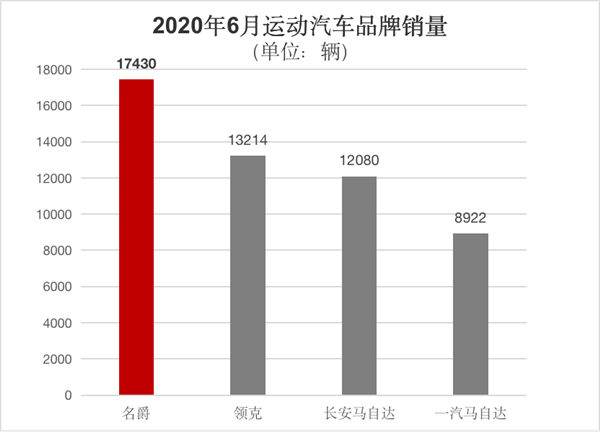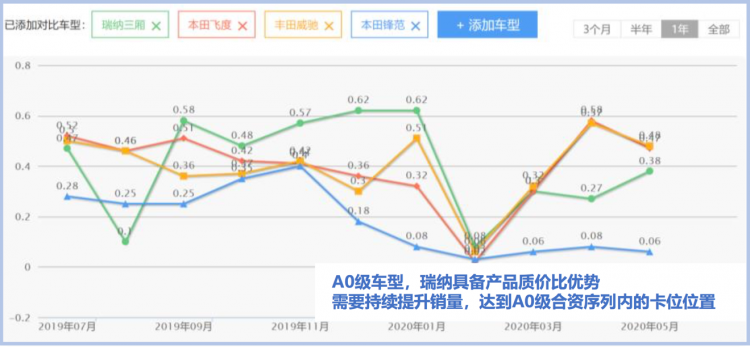The rural elderly care problem is facing severe challenges and has a broad market space. It is an important issue that must be faced in the implementation of the rural revitalization strategy. The government attaches great importance to the issue of rural elderly care, and the important policy documents issued in recent years have repeatedly mentioned opinions and measures to optimize rural elderly care services. Let me take a look below!
![[Rural Revitalization] Summary of Rural Pension Industry Policies](https://img.ucar.run/ecar/17260.jpg)
one
Opinions of the General Office of the State Council on Promoting the Development of Elderly Care Services
On April 16, 2019, the State Council issued the “Opinions on Promoting the Development of Elderly Care Services” (Guobanfa [2019] No. 5), in order to continue to improve the elderly care that is based on the home, supported by the community, supplemented by institutions, and combined with medical care. Service system, put forward six categories of 28 guiding opinions, including promoting the infrastructure construction of elderly care services and expanding the consumption of elderly care services, among which many measures involve optimizing rural elderly care services, including:
1. Rural nursing homes and elderly care institutions that meet fire safety requirements organized by schools, factories, commercial places , etc., but fail to pass the fire inspection due to problems such as real estate registration and land planning. Before the end of December 2019, the provincial government shall The civil affairs department should ask the provincial people’s government to organize relevant departments to study and deal with it intensively. Those who have the technical conditions for fire safety shall be issued opinions by relevant competent departments and shall enjoy corresponding supporting policies.
2. Reduce the tax and fee burden on elderly care services, and implement the residents’ price policy for elderly care service institutions to use electricity, water, gas, and heat, and not refuse to implement relevant price policies on the grounds of the nature of land and houses.
3. Combining the government’s purchase of grassroots public management and social services, develop a number of service posts for the elderly at the grassroots level, especially in streets (towns) and communities (villages), and give priority to recruiting people with employment difficulties, poor people with registered cards, and college graduates. .
4. Promote the integrated development of home, community and institutional elderly care, support elderly care institutions to operate community elderly care service facilities, and provide door-to-door services for the elderly at home. Vigorously develop mutual aid elderly care facilities such as rural happiness homes that can be supported by the government, run by the village, accessible to farmers, and provide sustainable services.
![[Rural Revitalization] Summary of Rural Pension Industry Policies](https://img.ucar.run/ecar/17261.jpg)
5. Implement the “Internet Elderly Care” action, continue to promote the development of the smart and healthy elderly care industry, and build a number of “smart elderly care homes” across the country.
6. Improve the care and service system for the elderly, establish and improve the working mechanism for regular visits to the elderly living alone, empty nesters, and left-behind elderly, and actively prevent and timely discover accidental risks.
7. Vigorously develop education for the elderly Give priority to the development of education for the elderly in the community, establish and improve a three-level community education network for the elderly at the “county (city, district)-township (street)-village (neighborhood committee)” to facilitate the elderly to learn nearby.
8. Implement the renovation and upgrading project of support service facilities (homes for the elderly) for the extremely poor, and incorporate the shortcomings of rural elderly care infrastructure and improve the construction standards of service facilities (homes for the elderly) for the extremely poor into the poverty alleviation work and rural revitalization strategy. From 2019, the renovation and upgrading project of the support service facilities for the extremely poor (nursing homes) will be implemented, and the support service facilities (nursing homes) for the extremely poor will be gradually transformed into regional elderly care service centers.
9. Places where conditions permit can actively guide urban and rural elderly families to carry out aging-appropriate renovations, and implement measures according to local conditions according to the social interaction and daily needs of the elderly, combined with the renovation of old residential areas.
10. Implement the zoning and grading planning and construction requirements for elderly care service facilities, and include the construction of community home-based elderly care service facilities into the scope of supporting housing construction in urban and rural communities; municipal and county-level governments should formulate policies and measures for integrating idle facilities and transforming them into elderly care service facilities; If the total amount of facilities is insufficient or the planning is lagging behind, it should be improved when the overall plan of the city or town is formulated or revised, and cities above the prefecture level with conditions should prepare special plans for elderly care service facilities.
11. To improve the land supply policy for elderly care service facilities , the departments of natural resources and civil affairs should actively coordinate and implement the land allocation policy. Encourage localities to explore the use of collective construction land to develop elderly care service facilities.
two
Opinions on promoting the development of forest health care industry
In March 2019, the State Forestry and Grassland Administration, the Ministry of Civil Affairs, the National Health Commission and the State Administration of Traditional Chinese Medicine jointly issued the “Opinions on Promoting the Development of the Forest Health Care Industry”.
The opinion pointed out that it is necessary to enrich forest health care products and focus on forest health care services such as health care, rehabilitation, health care, leisure and recreation. Actively develop service items such as forest bathing, forest diet therapy, and drug therapy, and vigorously develop products that combine traditional Chinese medicine with forest health care services. By 2022, build 300 national forest health care bases.
The opinion emphasizes that it is necessary to strengthen the guarantee of land use, use the second-level national public welfare forest land to carry out forest health care activities, and rationally use part of the collectively-owned land, mountains, forests, water surfaces, and tidal flats that have not been contracted in rural areas to develop the elderly care industry.
![[Rural Revitalization] Summary of Rural Pension Industry Policies](https://img.ucar.run/ecar/17262.jpg)
three
2019 Central No. 1 Document
In 2019, the No. 1 Central Document “Several Opinions on Adhering to the Priority Development of Agriculture and Rural Areas and Doing a Good Job in “Sannong” Work” was issued, which clarified the guiding opinions on optimizing rural elderly care services many times, including:
1. Improve the level of rural public services, comprehensively improve the level of rural education, medical and health care, social security, elderly care, culture and sports and other public services, and accelerate the equalization of basic public services between urban and rural areas.
2. Improve the mechanism for the determination of the basic pension insurance benefits for urban and rural residents and the normal adjustment of the basic pension.
3. Improve the care and service system for left-behind children, women, and the elderly in rural areas, support the development of multi-level rural pension services, and strengthen and improve services for the disabled in rural areas.
![[Rural Revitalization] Summary of Rural Pension Industry Policies](https://img.ucar.run/ecar/17263.jpg)
Four
National Rural Revitalization Strategic Plan
At the end of 2018, the national “Rural Revitalization Strategic Plan (2018-2022)” was issued, which systematically expounded the guiding opinions and measures for rural elderly care:
1. Strengthen the construction of rural social security system
Further improve the basic endowment insurance system for urban and rural residents, and accelerate the establishment of a mechanism for the determination of basic endowment insurance benefits for urban and rural residents and the normal adjustment of basic pension standards.
Promote the provision of caring services for rural left-behind children and women, the elderly, and children in difficulties through government procurement of services, establishment of grassroots public management and social service posts, and introduction of social work professionals and volunteers.
2. Improve rural elderly care service capabilities
With townships as the center, establish elderly care institutions with comprehensive service functions and a combination of medical care and nursing care, and cooperate with rural basic public services, rural special poverty support services, and rural mutual assistance elderly care services to form a rural basic elderly care service network.
Improve the capacity of rural health service institutions to provide health care services for the elderly.
Support the construction of rural elderly care service facilities mainly for the disabled and semi-disabled elderly, promote the development of mutual-aid elderly care services such as rural happiness homes, and establish and improve the care and service system for the left-behind elderly in rural areas.
Develop rural health care industry projects. Encourage village collective construction land to be used preferentially for the development of elderly care services.
3. Rural pension plan
There are a series of special plans in the plan, and the “rural pension plan” is specially planned in the “rural public service improvement plan”. The plan emphasizes:
Vigorously develop mutual assistance services for the elderly in rural areas through the modes of mutual assistance among neighbors, relatives and friends, and voluntary services.
Relying on rural community neutralization service centers (stations), comprehensive cultural service centers, village clinics, farm bookstores, national fitness facilities, etc., to provide caring services for the elderly.
Overall planning and construction of public welfare elderly care service facilities, 50 villages and towns have built a rural elderly care institution.
![[Rural Revitalization] Summary of Rural Pension Industry Policies](https://img.ucar.run/ecar/17264.jpg)
five
Rural Revitalization “No. 1 Document”
At the beginning of 2018, the No. 1 Central Document “Opinions on Implementing the Rural Revitalization Strategy” was issued, opening the first year of “rural revitalization” . The document puts forward specific guidance for “rural pension”:
1. For the use of idle farm houses to develop homestays, elderly care and other projects, study and introduce management measures to facilitate market access in fire protection, special industry operations and other fields, and strengthen supervision during and after the event.
2. Strengthen the construction of the rural social security system, improve the basic pension insurance system for urban and rural residents, and establish a mechanism for the determination of the basic pension insurance benefits for urban and rural residents and the normal adjustment of basic pension standards.
3. Construct a multi-level rural pension security system and innovate a diversified care service model.
4. Improve the care and service system for rural left-behind children, women, the elderly, and children in difficulty. Strengthen and improve rural disability services.
5. Promote the construction of healthy villages. Develop and standardize family doctor contract services, and strengthen health services for key populations such as women and children, the elderly, and the disabled.
Article| Warner Culture City Moufeng Language Studio




